Abstract
Purpose
A curriculum development model is presented to examine the processes necessary to develop new programs or evaluate existing programs within the philosophy of outcomes-based education in nursing, especially in the context of accreditation. The philosophy of outcomes-based education is to produce individuals who can demonstrate the evidence of competencies in designated areas of education. For nursing education, this means competencies in performing the role of professional nursing as defined by the profession and social needs at the beginning level upon completing a nursing program.
Methods
A curriculum development model has been developed analytically based on the literature and experiences.
Go to : 
References
American Association of Colleges of Nursing. 2008. The essentials of baccalaureate education for professional nursing practice. Washington, DC: Author.
American Nurses Association. 2010. Nursing: Scope and standards of practice. 2nd ed.Washington, DC: Author.
Bloom B. S.., Hastings J. T.., Madaus G. G.1971. Handbook on formative and summative evaluation of student learning. New York: McGraw-Hill.
Commission on Collegiate Nursing Education. 2009. Standards for accreditation of baccalaureate and graduate degree nursing programs. Washington, DC: Author.
Cronenwett L.., Sherwood G.., Barnsteiner J.., Disch J.., Johnson J.., Mitchell P., et al2007. Quality and safety education for nurses. Nursing Outlook. 55:122–131. http://dx.doi.org/10.1016/j.outlook.2007.02.006.

Finkelman A.., Kenner, C. 2009. Professional nursing concepts: Competencies for quality leadership. Sudbury, MA: Jones and Bartlett Publishers.
Frenk J.., Chen L.., Bhutta Z.., Cohen J.., Crisp N.., Evans T., et al2010. Health professionals for a new century: Transforming education to strengthen health systems in an interdependent world. Lancet. 376:1923–1958. http://dx.doi.org/10.1016/S0140-6736(10)61854-5.

Greiner A. C.., Knebel, E. 2003. Health professions education: A bridge to quality. Washington, DC: National Academies Press.
Hsu L. L.., Hsieh S.I. 2012. Development and psychometric evaluation of the competencyinventory for nursing students: A learning outcome perspective. Nurse Education Today. http://dx.doi.org/10.1016/j.nedt.2012.05.028.
Institute of Medicine. 2000. To err is human: Building a safer health system. Washington, DC: Author.
Institute of Medicine. 2003. Health professions education: A bridge to quality. Washington, DC: Author.
International Council on Nursing. 2004. Position statement: Scope of nursing practice. Geneve, Switzerland: Author.
Jones E.., Voorhees R.., Paulson, K. 2002. Defining and assessing learning: Exploring competency-based initiatives. Washington, DC: Council of the National Postsecondary Education Cooperative.
Korean Accreditation Board of Nursing Education. 2012. The standards of accreditation for nursing education. Seoul: Author.
Lenburg C. B.., Klein C.., Abdur-Rahman V. A.., Spencer T.., Boyer, S. 2009. THE COPA MODEL: A comprehensive framework designed to promote quality care and competence for patient safety. Nursing Education Perspectives. 30:312–317.
Go to : 




 PDF
PDF ePub
ePub Citation
Citation Print
Print


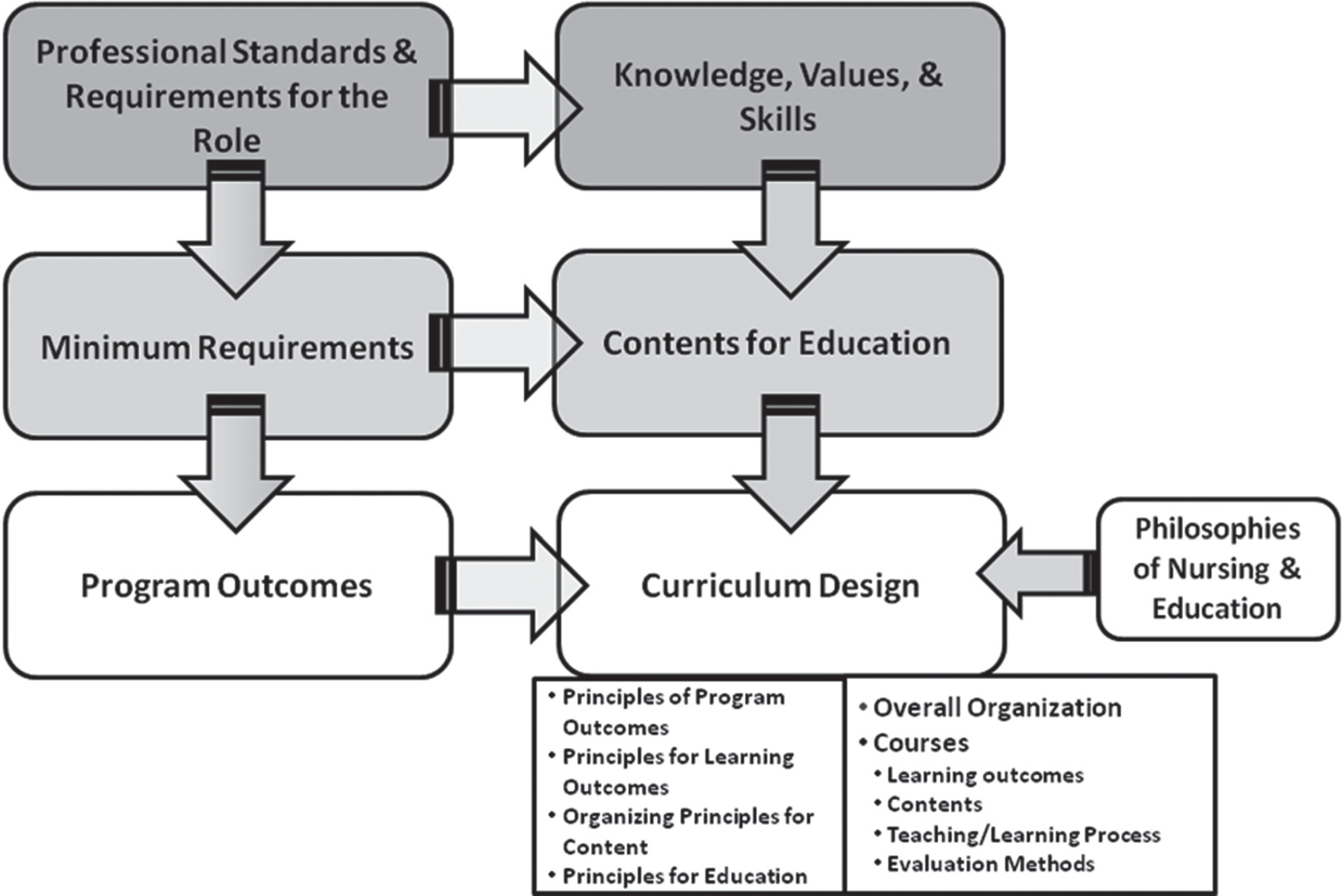
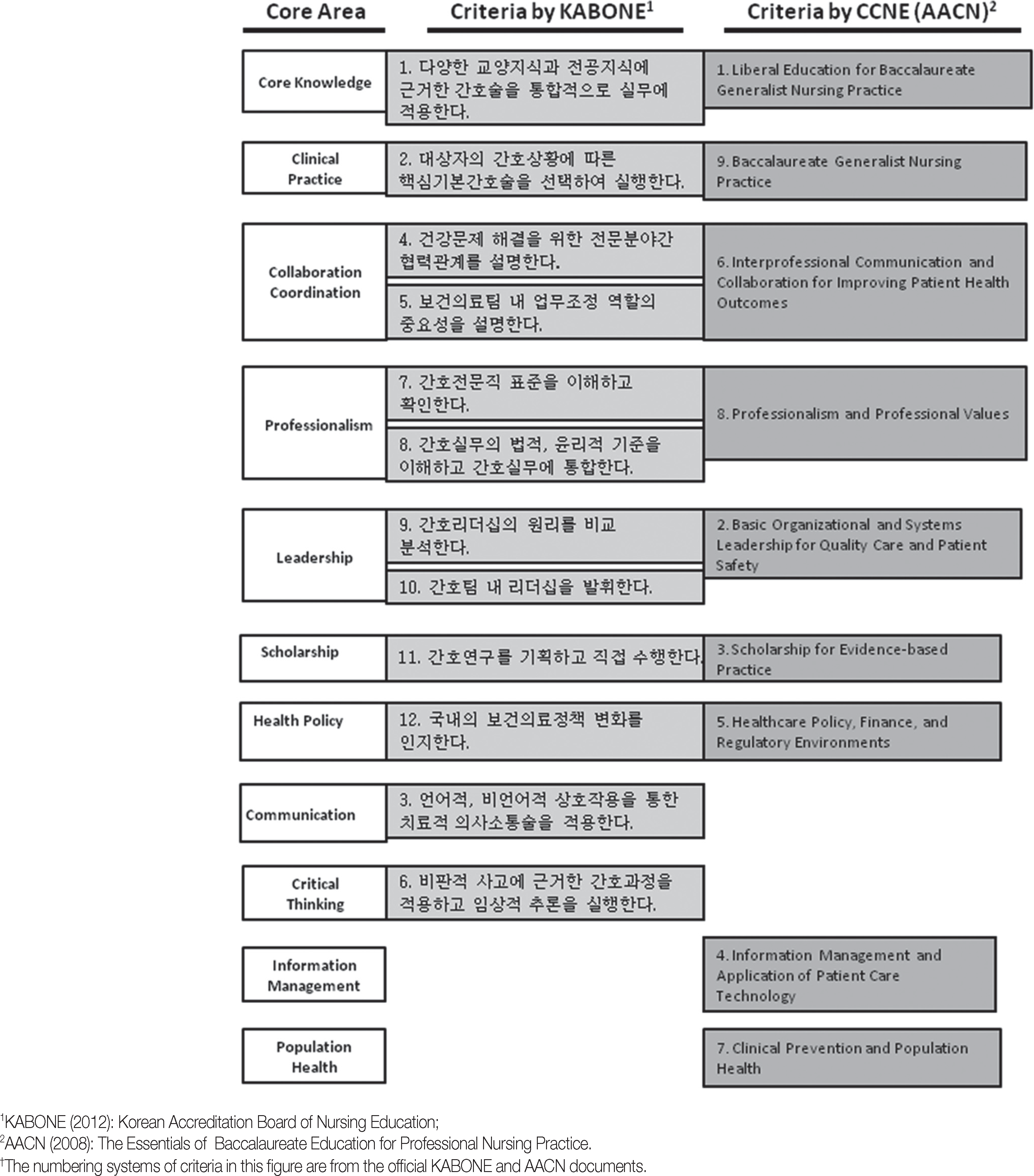
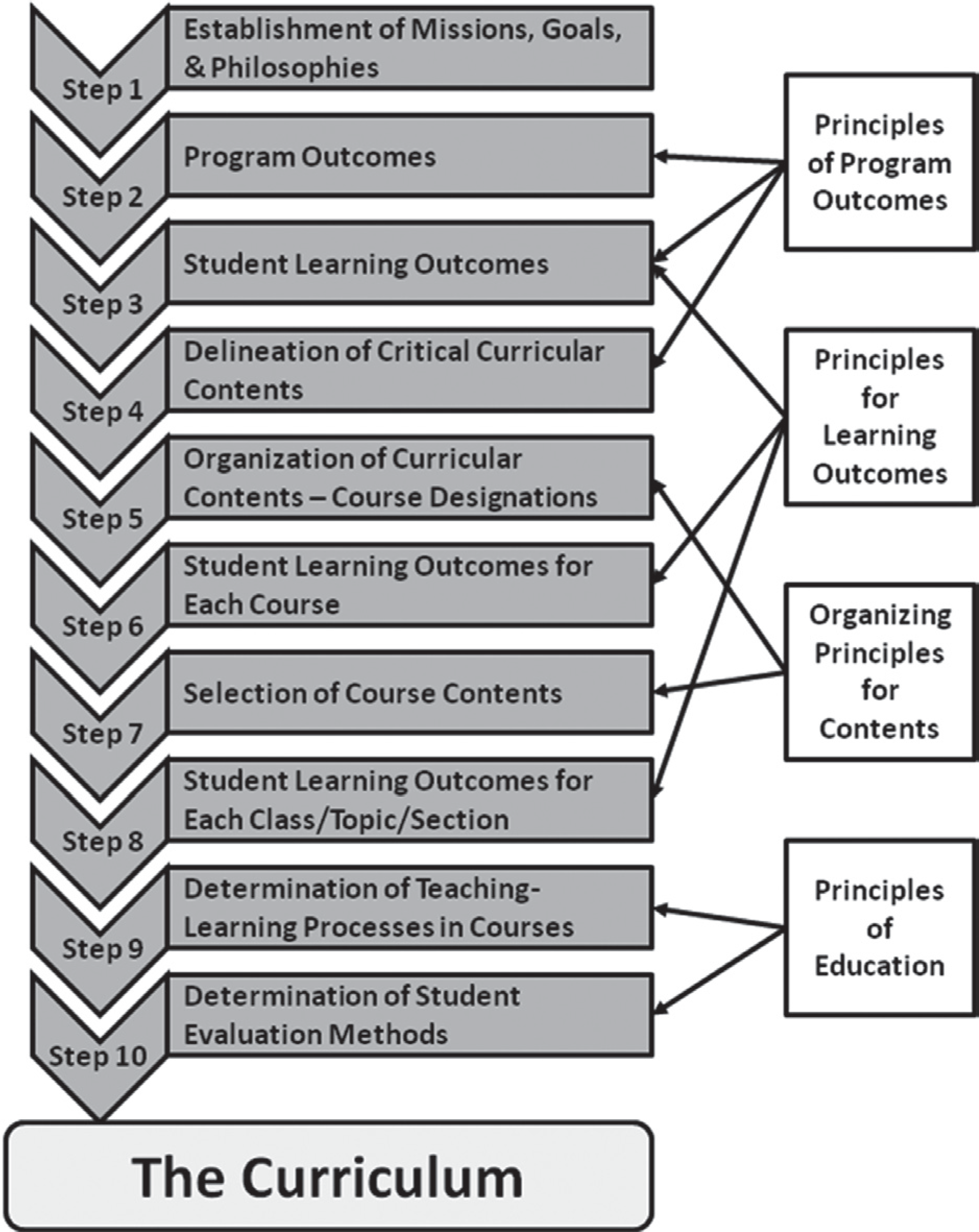
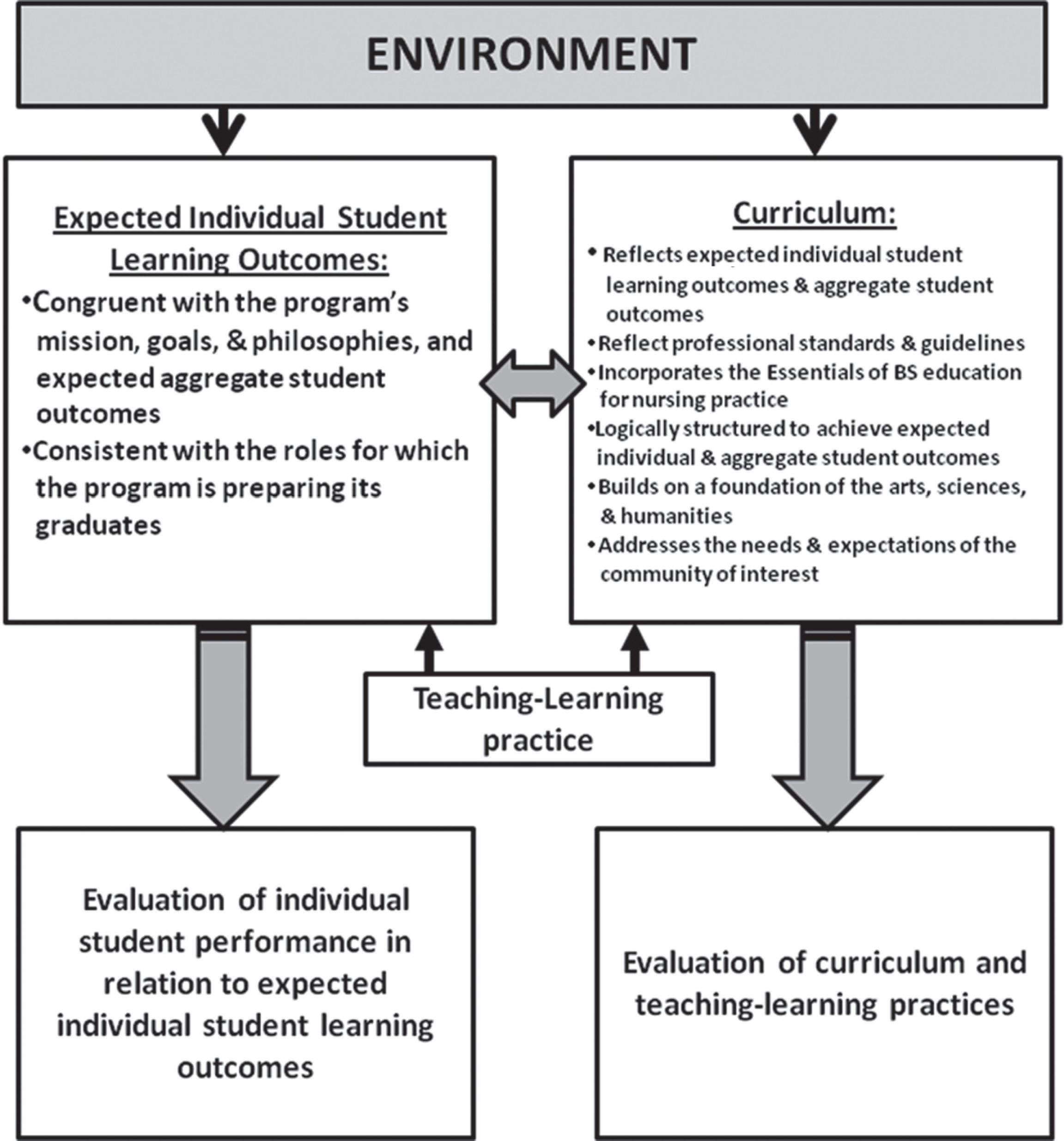
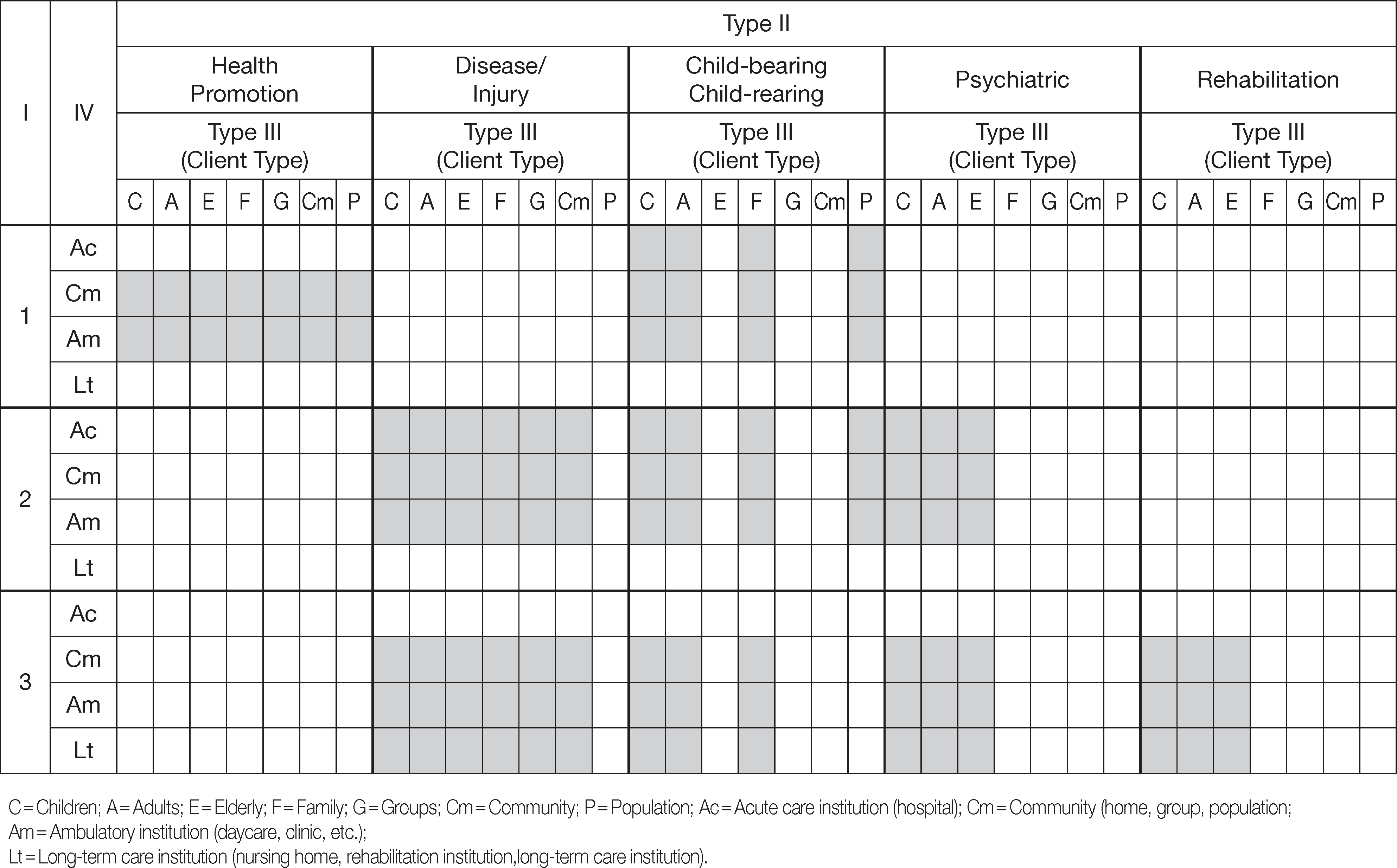
 XML Download
XML Download